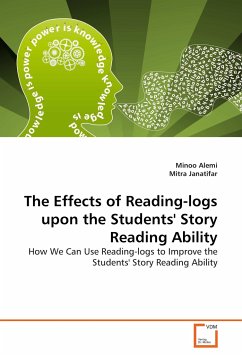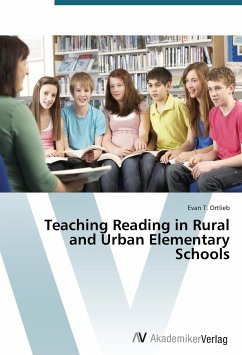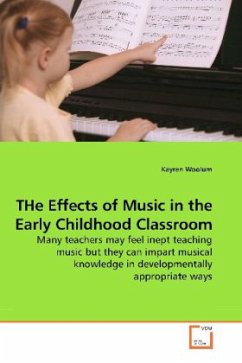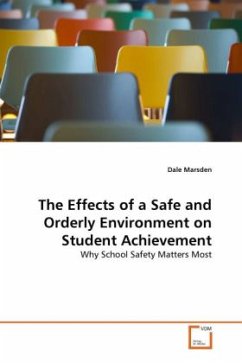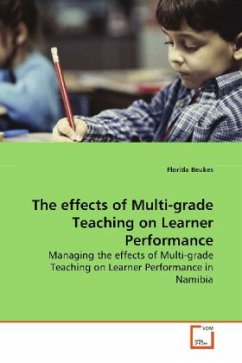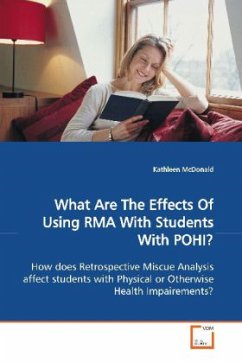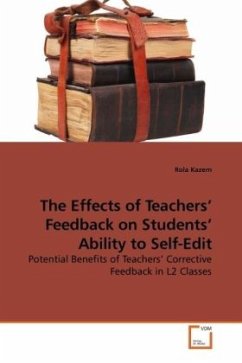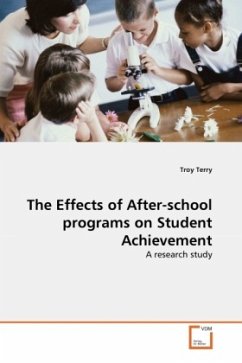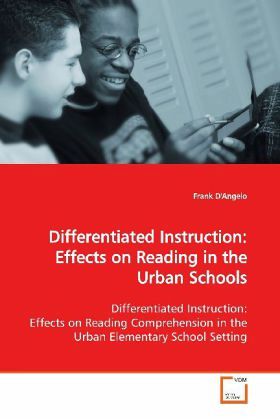
Differentiated Instruction: Effects on Reading in the Urban Schools
Differentiated Instruction: Effects on Reading Comprehension in the Urban Elementary School Setting
Versandkostenfrei!
Versandfertig in 6-10 Tagen
32,99 €
inkl. MwSt.

PAYBACK Punkte
16 °P sammeln!
This study examined the viability of graduallyand incrementally implementing flexibledifferentiated instruction, or what is commonly knownas flexible ability grouping , in primary and middleschools, with a focus on grade 4. The goal of studywas to show that a happy medium between tracking(i. e. total ability grouping) and whole-classinstruction (i. e. no ability grouping) would be themost viable alternative. This alternate is termedflexible differentiated instruction, of which theultimate goal is for teachers to design instructionmethods to meet the unique needs of the students,with a minimal ...
This study examined the viability of gradually
and incrementally implementing flexible
differentiated instruction, or what is commonly known
as flexible ability grouping , in primary and middle
schools, with a focus on grade 4. The goal of study
was to show that a happy medium between tracking
(i. e. total ability grouping) and whole-class
instruction (i. e. no ability grouping) would be the
most viable alternative. This alternate is termed
flexible differentiated instruction, of which the
ultimate goal is for teachers to design instruction
methods to meet the unique needs of the students,
with a minimal amount of disruption and the maximum
amount of academic improvement.
Results were measured independently as to the
level of success of the program, both through an
extensive literature review and a research design
using the Burns & Roe Informal Reading Inventory.
The findings of this research indicated that
students who were treated with a flexible
differentiated instruction grouping approach
developed reading comprehension skills achieved at a
greater rate than students who were treated with a
whole class model and a fully differentiated model.
and incrementally implementing flexible
differentiated instruction, or what is commonly known
as flexible ability grouping , in primary and middle
schools, with a focus on grade 4. The goal of study
was to show that a happy medium between tracking
(i. e. total ability grouping) and whole-class
instruction (i. e. no ability grouping) would be the
most viable alternative. This alternate is termed
flexible differentiated instruction, of which the
ultimate goal is for teachers to design instruction
methods to meet the unique needs of the students,
with a minimal amount of disruption and the maximum
amount of academic improvement.
Results were measured independently as to the
level of success of the program, both through an
extensive literature review and a research design
using the Burns & Roe Informal Reading Inventory.
The findings of this research indicated that
students who were treated with a flexible
differentiated instruction grouping approach
developed reading comprehension skills achieved at a
greater rate than students who were treated with a
whole class model and a fully differentiated model.



